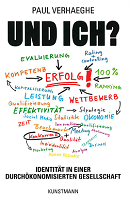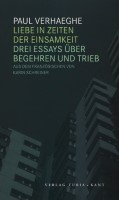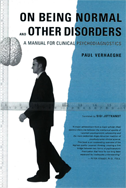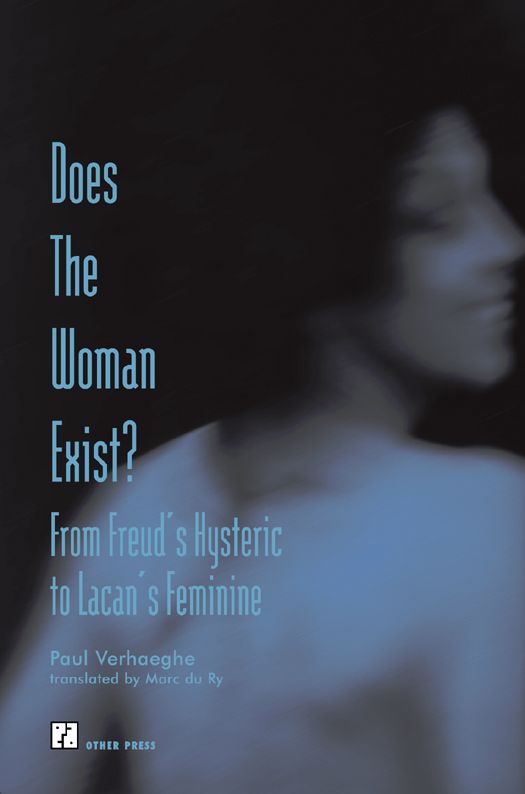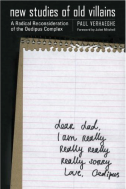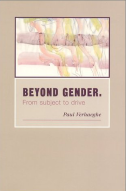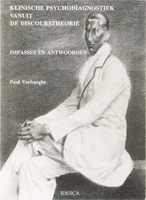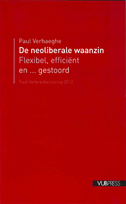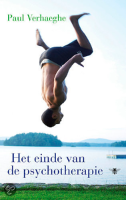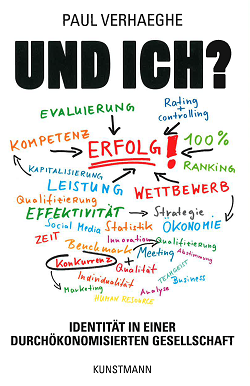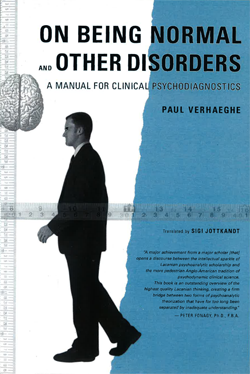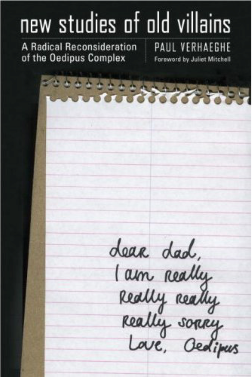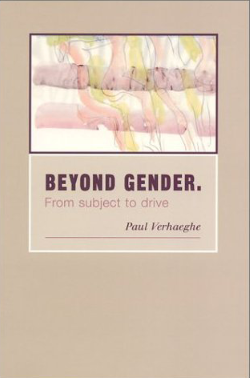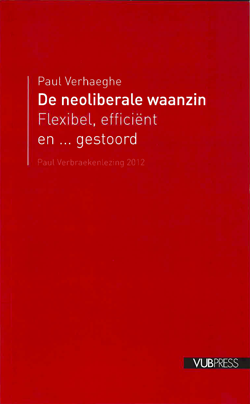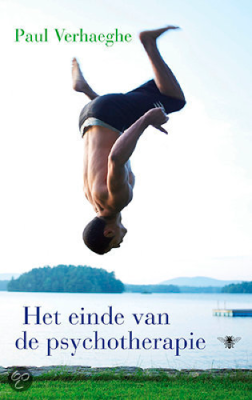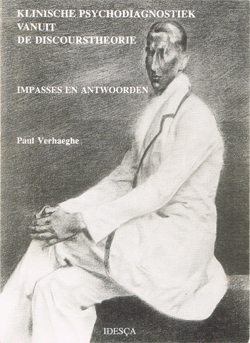
Und ich? - Identität in einer durchökonomisierten Gesellschaft
Verlag Antje Kunstmann, München
Gebunden mit Schutzumschlag | 2013
Übersetzt von Birgit Erdmann und Angela Wicharz-Lindner
Auflage | ISBN: 978-3-88897-869-2
Identität in einer durchökonomisierten Gesellschaft
www.kunstmann.de
- "Eine Gesellschaft, in der alles von der Wirtschaft durchdrungen ist, macht krank! - das sagt der international renommierte Psychologie-Professor Paul Verhaeghe von der Universität Gent. In seinem neuen Werk legt er schonungslos die Ursachen dafür bloß." text
Hessischer Rundfunk, hr Info
- "Der kalten Wut, die den Leser bei der Lektüre von Verhaeghes schonungsloser Systemkritik packt, setzt der Autor am Ende ein Kapitel über ‚das gute Leben' entgegen, für das sich jeder selbst engagieren muss." text
Ralf Deckert, Schwarzwälder Bote
- Enorm magazine. text
- Der Psychoanalytiker Paul Verhaeghe beschreibt, wie die moderne Wirtschaft eine gnadenlose Auslese betreibt - und die Menschen damit in einen ständigen Wettbewerb stürzt. Eine Abrechnung mit dem Neoliberalismus." Ingo Leipner, Frankfurter Rundschau & Berliner Zeitung (online) text text
- "Identität ist Ideologie", behauptet Paul Verhaeghe. In seinem neuen Buch weist er dem neoliberalen System die Schuld an unserer psychischen Verfassung zu. text
Zeit Online , hr Info
- "Schon Kleinkinder sollten gut aufgestellt sein" text
Frankfurther Allgemeine, hr Info
- Neoliberalismus macht krank. So Könnte man es zusammenfassen... text
Der Freitag, hr Info
- In einer Zeit, in der Gott tot ist,... text
Akzente Hochschule Zürich 2014
- Oberstes Ziel ist das Überleben, gefolgt von Sex text
Buchmonat.de - Juni 2014
- Bruder, zur Wonne! text
Spiegel JOB
- Identität in einer durchökonomisierten Gesellschaft text
Attac Deutschland
- Unsere vorgegaukelte Freiheit text
Zeit
- Die gefährliche Einsamkeit der Großstädter text
Zeit
Liebe in Zeiten der Einsamkeit
Verlag Turia + Kant | Paperback | 2009
ISBN10: 385132563X | ISBN13: 9783851325638
Sex ist der einzige Bereich, für den der Mensch bis zum Äußersten geht, um »es« zu bekommen. Dass er "es" dabei nie bekommt und auch nicht wirklich sagen kann, was »es« ist, stellt kein Hindernis für seine Leidenschaft dar. Ganz im Gegenteil!
Ein Besuch im Louvre oder im British Museum ist je- des Mal ein Vergnügen. Wenn ich durch die einzelnen Säle spaziere, in denen das Leben unserer Vorfahren sehr anschaulich zur Schau gestellt wird, versuche ich mir stets vorzustellen, wie dieses Leben sich wohl abgespielt haben mag, wie der Lindow-Mann seinen Tod empfunden hat, wovon das in Stein gehauene, Hand in Hand dargestellte ägyptische Pärchen ge- träumt hat … und nie gelingt es mir! Das Leben unse- rer Vorfahren muss im Verhältnis zu unserem jetzigen Leben so anders gewesen sein, dass man es sich heute kaum vorzustellen vermag. Wenn unter den histori- schen Werken das Buch Herbst des Mittelalters von Johan Huizinga1 zu einem Klassiker geworden ist, so deshalb, weil dieser Unterschied darin so besonders überzeugend dargestellt wird.
Lesen Sie weiter
Englisch Ausgabe downloaden
On Being Normal and Other Disorders: A Manual for Clinical Psychodiagnostics
Other Press | Paperback | 2004
ISBN10: 1590510895 | ISBN13: 9781590510896
The central argument of On Being Normal and Other Disorders is that psychic identity is acquired through one's primary intersubjective relationships. Thus, the diagnosis of potential pathologies must also be founded on this relation. Given that the efficacy of all forms of treatment depends upon the therapeutic relation, a diagnostic of this sort has wide-ranging applications.
By engaging this new theoretical approach in a constant dialogue with the findings of contemporary research, this book provides a compass for the practical applications of such a differential diagnostic. Post-modern categories of anxiety disorders, personality disorders, and post-traumatic stress disorders are approached both through the well-known neurotic, psychotic, and perverse structures, as well as through the less familiar distinction between an actual pathology and a psychopathology. These two outlooks, which involve the role of language and the subject's relation to the Other, are spelled out to show their implications for treatment at every turn.
Does the Woman Exist?: From Freud's Hysteric to Lacan's Feminine
Other Press | Paperback | 1999
ISBN10: 1892746158 | ISBN13: 9781892746153
This book describes how Freud attempted to chart hysteria, yet came to a standstill at the problem of woman and her desire, and of how Lacan continued along this road by creating new conceptual tools. The difficulties and upsets encountered by both men are examined.
This lucid presentation of the dialectical process that carries Lacan through the evolution of Freud’s thought offers profound insights into the place of the “feminine mystique” in our social fabric. Patiently and carefully, Verhaeghe applies the Lacanian grid to Freud’s text and succeeds in explaining Lacan’s formulations without merely recapitulating his theories. The reader is informed, along the way, not only of Lacan’s take on Freudian ideas, but also of the array of interpretations emerging from other trends in post-Freudian literature, including feminist revisionism.
New Studies of Old Villains: A Radical Reconsideration of the Oedipus Complex
Other Press | Paperback | 2009
ISBN10: 1590512820 | ISBN13: 9781590512821
Freud's discovery of the Oedipus complex has had a tumultuous fate in the field of psychology in the United States. At first considered the kernel of psychoanalysis it progressively lost its luster because of its patriarchal underpinnings—today Freud is barely studied in psychology departments. His theory of the unconscious born of the notion that the child represses his love for his mother for fear of incurring his father's wrath is now obsolete and replaced by various theories focused mainly on the mother-child relationship where the burning question of the child's sexual development is conveniently set aside. In this revolutionary book Paul Verhaeghe, an expert Lacanian psychoanalyst and psychologist and award-winning author, explains why the Oedipus complex is not what it appears to be. Freud's theory can be read as aa defensive myth that patients themselves invent in order to avoid confronting a forbidden enjoyment. Lacan's theory sheds a new light on this need for a defense. Seen from that angle the whole history of psychoanalysis, its twists and turns, is revisited, revealing connections with recent discoveries in attachment theory. New Studies on Old Villains will be of great interest to psychologists, therapists, and departments of psychology.
Beyond Gender: From Subject to Drive (Studieboek)
Other Press | Paperback | 2001
ISBN10: 1590510054 | ISBN13: 9781590510056
Freud's discovery of the Oedipus complex has had a tumultuous fate in the field of psychology in the United States. At first considered the kernel of psychoanalysis it progressively lost its luster because of its patriarchal underpinnings—today Freud is barely studied in psychology departments. His theory of the unconscious born of the notion that the child represses his love for his mother for fear of incurring his father's wrath is now obsolete and replaced by various theories focused mainly on the mother-child relationship where the burning question of the child's sexual development is conveniently set aside. In this revolutionary book Paul Verhaeghe, an expert Lacanian psychoanalyst and psychologist and award-winning author, explains why the Oedipus complex is not what it appears to be. Freud's theory can be read as aa defensive myth that patients themselves invent in order to avoid confronting a forbidden enjoyment. Lacan's theory sheds a new light on this need for a defense. Seen from that angle the whole history of psychoanalysis, its twists and turns, is revisited, revealing connections with recent discoveries in attachment theory. New Studies on Old Villains will be of great interest to psychologists, therapists, and departments of psychology.
Download
hier het volledige boek.
De neoliberale waanzin: Efficiënt, flexibel en gestoord
VUBPress | Nederlands | Aantal pagina’s: 52 | Paperback
Druk: 1 | ISBN13: 9789070289270
Vandaag is onze omgeving door en door neoliberaal en dit al voldoende lange tijd om vormgevende effecten te hebben op onze identiteit, onze normen en waarden. Afgaand op de statistieken is de balans overduidelijk negatief: nooit waren er zo veel stoornissen als vandaag. Die stoornissen zijn bovendien anders dan pakweg dertig jaar geleden en ze worden ook anders behandeld. In vergelijking met de klassieke psychotherapie is de huidige aanpak niet veel meer dan een disciplinering (zit stil en let op!) die perfect aansluit bij de huidige angst voor de ander. Dat ook deze angst een gevolg is van het neoliberalisme heeft als effect dat collectief protest zeer moeilijk van de grond komt. Dat zo’n protest nodig is lijdt volgens Paul Verhaeghe geen twijfel.
Het Einde van de Psychotherapie
De Bezige Bij | Nederlands | Aantal pagina’s: 256 | Paperback
Druk: 4 | ISBN10: 9023458249 | ISBN13: 9789023458241
Beleven we het einde van de psychotherapie? Heeft Freud afgedaan? Tegenwoordig wordt verondersteld dat alle psychische problemen – adhd, depressie, burn-out, persoonlijkheidsstoornis – ziektes zijn, of gevolgen van erfelijke afwijkingen die met medicijnen te bestrijden zijn. Pillen in plaats van praten.
Paul Verhaeghe neemt in dit boek krachtig stelling tegen deze ontwikkeling. De oorzaken van het groeiend aantal psychische problemen moeten niet gezocht worden in genen of neuronen, maar in de manier waarop onze maatschappij met psychische problemen omgaat. Mensen gaan met andere problemen naar de psychiater dan vroeger, zijn minder dan voorheen geneigd tot intro- spectie en reflectie en verwachten zonder enige persoonlijke inspanning direct van hun problemen verlost te kunnen worden. De bijna automatisch voorgestelde remedie – pillen – bevestigt deze situatie.
Het einde van de psychotherapie pleit voor een andere visie op de hedendaagse psychische problemen en een grondige herwaardering van de psychotherapie.
Klinische Psychodiagnostiek vanuit de discourstheorie (Studieboek)
Idesçca | Nederlands | Aantal pagina’s: 211 | Paperback
Druk: 1 | ISSN: 0771-5862
Impasses en antwoorden

